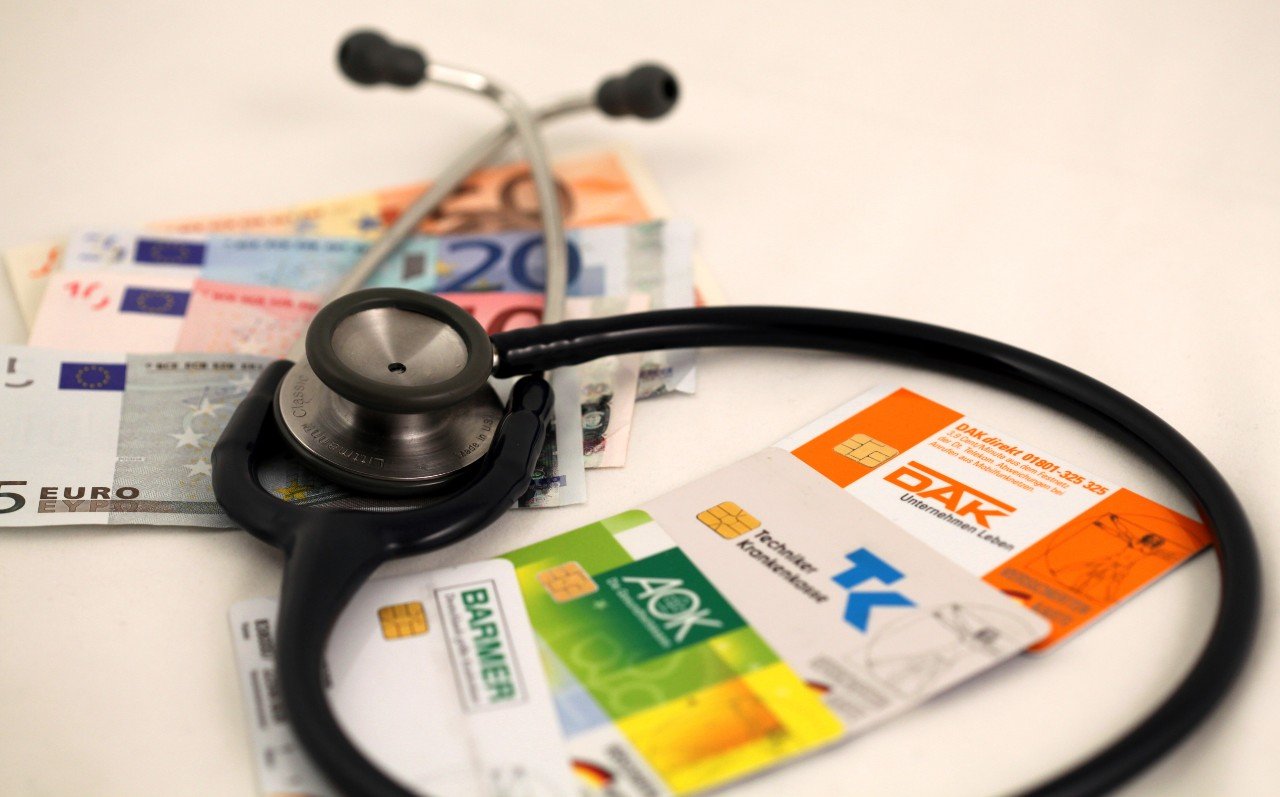Income tax and child allowance changes
The Inflation Compensation Act is bringing about a number of changes to what people will be left with in their wallets after tax.
Germany's basic tax allowance increased from €10,908 to €11,604 on January 1st, 2024. For married couples, the allowance rises to €23,208. This means that any income below this limit is not subject to tax.
In January 2023, child benefits (Kindergeld) in Germany was expanded to €250 per month per child. It is expected to remain this way in 2024.
The child tax exemption (Kinderfreibetrag), which guarantees that parents’ income remains tax free up to a certain amount, is set to be increased from €6,024 to €6,384 in 2024.
There are also adjustments to the solidarity surcharge. This already disappeared completely for around 90 percent of taxpayers in 2021. For the remaining payers, the exemption limit will increase by a further €587 from January 2024.
For a more detailed analysis of how much you'll take home after salary deductions, fill out the Stiftung-Warentest calculator.
READ ALSO: What benefits are you entitled to in Germany if you have children?
Statutory minimum wage goes up
The minimum wage was €12 per hour, but it is set to rise in two stages: on January 1st 2024, it went up to €12.41 gross per hour and one year later to €12.82. In some sectors, there are binding minimum wages that are already higher than the general statutory minimum wage.

Mini-job limit increases from January
What do mini-jobbers need to bear in mind with regard to the monthly earnings limit? "If the general minimum wage is increased, the mini-job limit will also rise," says the Minijob Centre on its website with a view to the coming year.
It will increase from €520 to €538 per month from January 2024, according to the advice centre. "The annual earnings limit will increase accordingly to €6,456," they said.
Germany introduced mini-jobs as a way for employers to get part-time workers more easily, and for those same workers to enjoy the flexible working arrangements part-time work can sometimes offer, with certain exemptions from tax.
READ ALSO: The rules in Germany around mini and midi jobs
Bürgergeld goes up by 12 percent
The standard rates for long-term unemployment income and social assistance increased from January 2024. Single adults will receive €563 per month - €61 more than before. Adults living with a partner will receive €506 instead of the previous €451.
Those living with young dependents also get more, depending on the age of their children. For parents or guardians of young people aged 15 to under 18 will receive €471 (previously €420). For children from the age of seven to the age of 14, the rate rises from €348 to €390. For the youngest children, it will rise from €318 to €357.
School supply benefits
The amounts provided to pupils for personal school supplies increases by around 12 percent - from €116 to €130 in the first half of the school year and from €58 to €65 the second half of the school year.
The support for personal school supplies is part of the so-called education package for children, adolescents and young adults who receive Bürgergeld or social welfare or whose parents receive child supplement (Kinderzuschlag) or housing benefit (Wohngeld).
Elterngeld (parental allowance) changes
At the moment, couples in Germany can receive parental allowance up to an annual taxable income of €300,000. But this limit was set to fall to €150,000 for couples, meaning those earning a combined income over that limit would not receive parental allowance.
However, after much criticism, the coalition government has agreed to lower it in two stages, first to €200,000 and then to €175,000. The limit for single parents - currently at €250,000 - will be lowered to €150,000.
Nothing will change for parents whose children are born by March 31st 2024. From April 1st, 2024, however, the new €200,000 limit will apply for couples and the €150,000 limit for single parents. The new limit of €175,000 will apply to couples whose baby is born from April 1st, 2025.
Unlike Mutterschutz (maternity leave), which is solely for mothers before and after the birth of their child, Elterngeld offered an allowance of paid time off that both parents could split between them however they liked. Up to €1,800 a month is available to replace lost earnings.
READ ALSO: 'A horrible idea': How cuts to Elterngeld will affect families

VAT goes up in cafes and restaurants
For those enjoying meals at cafes and restaurants, there is a big change in 2024.
That's because the German government has decided to raise the VAT back up to 19 percent from seven percent.
The tax had been lowered as a measure against increasing inflation due to the energy crisis.
The cost of eating out has already gone up significantly - so this will be another hit on people's wallets, and will also affect restaurant owners.
READ ALSO: How Germany's plans to hike VAT in restaurants and cafes will affect you
Energy price brakes end
Germany's electricity and gas price caps expired at the end of 2023.
The Bundestag had originally voted to extend the programme until the end of March 2024.
But the government decided to end them earlier than planned after a top court ruling upended spending plans.
The announcement means consumers could see their energy bills go up from the current limit of €0.40 per KwH for electricity and €0.12 per KwH for gas.
However, it will depend on households' individual tariffs and consumption.
Motor vehicle insurance premiums to increase
Motor vehicle insurance premiums will rise by at least 10 percent in 2024, according to Germany's central Consumer Advice Centre (Verbraucherzentrale).
The main reason for this is that the costs of repairs have risen due to high inflation. Comparing prices from different providers is worthwhile because of the tough competition. If prices go up, consumers have a special right of termination four weeks after receiving the notification.
Health insurance additional contributions may go up
From the start of 2024, additional contributions for statutory health insurance have been allowed to rise by 0.1 percent in Germany.
The move will bring these contributions up to their highest rate ever of 1.7 percent.
Previously, mandatory health insurance contributions were set at 14.6 percent and additional contributions (which are set by the health insurer) can be up to 1.6 percent.
Not every insurer chooses to charge the maximum additional contribution set by the state. For example, Techniker Krankenkasse currently charges 1.2 percent, while Barmer charges 1.5 percent.

This means that not everyone with statutory health insurance will see an increase in costs next year, but some insurers are likely to opt for the additional income.
For those in employment, it could mean an extra 0.05 percent of their wages would go to their health insurance - amounting to 5 cents per €100 earned - with the other 0.05 percent covered by their employers.
READ ALSO: How German health insurance costs are set to rise from 2024
Income thresholds for health insurance and pensions go up
The majority of employees in Germany automatically pay statutory health insurance and pension contributions out of their salary - but there are exceptions for higher earners.
In 2024, the salary at which employees can opt out of statutory health insurance goes up to €69,300 per year from the current €66,600. That equates to a monthly salary of €5,775 before tax.
The so-called 'Beitragsbemessungsgrenze' - which caps how much of your income used to calculate your health insurance - will also increase to €62,100 in 2024 from €59,850 in 2023. So if you earn €65,000 per year, for example, your statutory insurance will only be calculated as a percentage of €62,100, rather than your full salary.
A similar system is used to calculate pension contributions: these are calculated as a percentage of your income, but only up to a certain amount.
In 2024, that amount is €7,450 per month in the former East German states and €7,550 in western states.

Comments